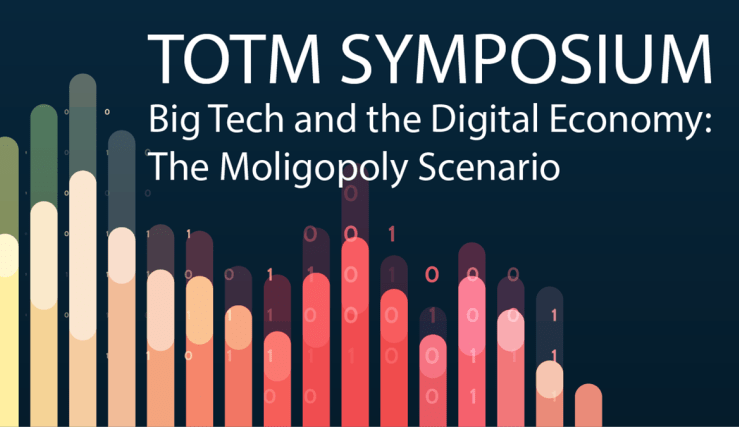Showing archive for: “EU”
Mandatory Interoperability Is Not a ‘Super Tool’ for Platform Competition
On both sides of the Atlantic, 2021 has seen legislative and regulatory proposals to mandate that various digital services be made interoperable with others. Several bills to do so have been proposed in Congress; the EU’s proposed Digital Markets Act would mandate interoperability in certain contexts for “gatekeeper” platforms; and the UK’s competition regulator will ... Mandatory Interoperability Is Not a ‘Super Tool’ for Platform Competition
Case closed: Google wins (for now)
The European Commission and its supporters were quick to claim victory following last week’s long-awaited General Court of the European Union ruling in the Google Shopping case. It’s hard to fault them. The judgment is ostensibly an unmitigated win for the Commission, with the court upholding nearly every aspect of its decision. However, the broader ... Case closed: Google wins (for now)
Judge Ginsburg: On the Proposed Digital Markets Unit and the UK’s Competition and Markets Authority
Thank you, Victoria, for the invitation to respond to Mr. Coscelli and his proposal for a legislatively founded Digital Markets Unit. Mr. Coscelli is one of the most talented, successful, and creative heads a competition agency has ever had. In the case of the DMU [ed., Digital Markets Unit], however, I think he has let ... Judge Ginsburg: On the Proposed Digital Markets Unit and the UK’s Competition and Markets Authority
Consumer Welfare-Based Antitrust Enforcement is the Superior Means to Deal with Large Digital-Platform Competition Issues
There has been a rapid proliferation of proposals in recent years to closely regulate competition among large digital platforms. The European Union’s Digital Markets Act (DMA, which will become effective in 2023) imposes a variety of data-use, interoperability, and non-self-preferencing obligations on digital “gatekeeper” firms. A host of other regulatory schemes are being considered in ... Consumer Welfare-Based Antitrust Enforcement is the Superior Means to Deal with Large Digital-Platform Competition Issues
The Contestable Platform Paradox
Why do digital industries routinely lead to one company having a very large share of the market (at least if one defines markets narrowly)? To anyone familiar with competition policy discussions, the answer might seem obvious: network effects, scale-related economies, and other barriers to entry lead to winner-take-all dynamics in platform industries. Accordingly, it is ... The Contestable Platform Paradox
5 Thoughts on the Senate’s Proposed Platform Self-Preferencing Ban
A bipartisan group of senators unveiled legislation today that would dramatically curtail the ability of online platforms to “self-preference” their own services—for example, when Apple pre-installs its own Weather or Podcasts apps on the iPhone, giving it an advantage that independent apps don’t have. The measure accompanies a House bill that included similar provisions, with ... 5 Thoughts on the Senate’s Proposed Platform Self-Preferencing Ban
How US and EU Competition Law Differ
U.S. and European competition laws diverge in numerous ways that have important real-world effects. Understanding these differences is vital, particularly as lawmakers in the United States, and the rest of the world, consider adopting a more “European” approach to competition. In broad terms, the European approach is more centralized and political. The European Commission’s Directorate ... How US and EU Competition Law Differ
For Scotch Whisky, Age Is Just A Number
For a potential entrepreneur, just how much time it will take to compete, and the barrier to entry that time represents, will vary greatly depending on the market he or she wishes to enter. A would-be competitor to the likes of Subway, for example, might not find the time needed to open a sandwich shop ... For Scotch Whisky, Age Is Just A Number
Antitrust Statutorification
A lot of water has gone under the bridge since my book was published last year. To close this symposium, I thought I would discuss the new phase of antirust statutorification taking place before our eyes. In the United States, Congress is working on five antitrust bills that propose to subject platforms to stringent obligations, ... Antitrust Statutorification
Build Broadband Better: Focus on Competition, Not Competitors
President Joe Biden named his post-COVID-19 agenda “Build Back Better,” but his proposals to prioritize support for government-run broadband service “with less pressure to turn profits” and to “reduce Internet prices for all Americans” will slow broadband deployment and leave taxpayers with an enormous bill. Policymakers should pay particular heed to this danger, amid news ... Build Broadband Better: Focus on Competition, Not Competitors
Dynamic Merger Efficiencies: The Case of Pharmaceutical Markets
The recent launch of the international Multilateral Pharmaceutical Merger Task Force (MPMTF) is just the latest example of burgeoning cooperative efforts by leading competition agencies to promote convergence in antitrust enforcement. (See my recent paper on the globalization of antitrust, which assesses multinational cooperation and convergence initiatives in greater detail.) In what is a first, ... Dynamic Merger Efficiencies: The Case of Pharmaceutical Markets
The Virtues and Pitfalls of Economic Models
Interrogations concerning the role that economic theory should play in policy decisions are nothing new. Milton Friedman famously drew a distinction between “positive” and “normative” economics, notably arguing that theoretical models were valuable, despite their unrealistic assumptions. Kenneth Arrow and Gerard Debreu’s highly theoretical work on General Equilibrium Theory is widely acknowledged as one of ... The Virtues and Pitfalls of Economic Models












